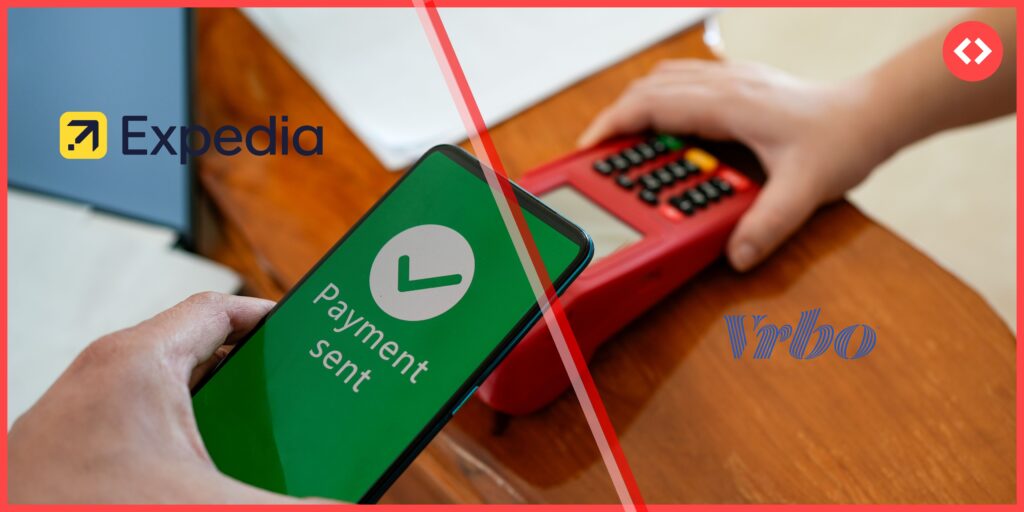Expedia Group has announced a pilot for Vrbo Payments, a new system that makes Expedia the merchant of record for vacation rental transactions. It’s a big shift for a platform that, until now, often left payment processing in the hands of property managers or third-party providers.
For short-term rental managers, the change has implications for how bookings are processed, how money flows, and how Vrbo connects with Expedia’s broader loyalty ecosystem.
What Vrbo Payments Means
When Expedia acts as merchant of record (MoR), it is the entity that:
- Charges the guest’s credit card or digital wallet.
- Collects booking fees and holds funds before disbursement.
- Issues refunds and handles chargebacks or disputes.
- Appears as “Expedia” on the guest’s payment statement.
In short, Vrbo managers won’t be the ones directly processing guest payments anymore, Expedia will.
Implications for Property Managers
The Upside
- Reduced payment risk: Chargebacks and fraud are handled by Expedia, not managers.
- Simpler onboarding: Less compliance paperwork and integration hassle.
- Guest trust: Many travelers feel safer paying “Expedia” than an unfamiliar management company.
The Trade-offs
- Less control over payouts: Expedia sets the payout schedule; managers can’t customize it.
- Policy limitations: Cancellation and refund rules may be standardized, with less flexibility for managers.
- Increased dependency: If payments run through Expedia, it becomes harder to operate outside the platform’s ecosystem.
Why Expedia Is Making This Move
Airbnb has always been merchant of record. Booking.com is increasingly shifting from its older agency model (guest pays host directly) toward facilitated payments. Vrbo has been an outlier, one of the last major OTAs where managers often collected payments themselves.
By stepping in as MoR, Expedia is:
- Aligning Vrbo with industry norms.
- Streamlining guest experience (fewer unfamiliar charges, more consistent refunds).
- Centralizing financial control within the Expedia ecosystem.
The Loyalty Angle: OneKeyCash
Perhaps the biggest reason for Vrbo Payments is loyalty. Expedia’s unified program, One Key, rewards travelers with OneKeyCash that can be spent across Expedia, Hotels.com, and now Vrbo.
- Before: Guests could earn OneKeyCash when booking Vrbo, but couldn’t always spend it there, because Vrbo wasn’t the merchant of record.
- Now: With Expedia processing payments, OneKeyCash can be applied directly to Vrbo stays.
For property managers, that means more visibility to loyalty-driven travelers who might otherwise choose a hotel. For Expedia, it’s a powerful way to keep travelers within its ecosystem.
What Managers Should Watch For
- Payout timing: How quickly will managers get their money after Expedia collects? Airbnb’s schedule, for example, is predictable but rigid.
- Fee structures: Will MoR change Vrbo’s commission model, or add processing fees?
- Policy control: How much flexibility will managers lose in setting payment, deposit, or refund policies?
- Adoption timeline: The pilot is limited, but Expedia hasn’t said when or if Vrbo Payments will roll out universally.
The Takeaway
Vrbo Payments brings Vrbo in line with how the rest of the OTA world already operates. For managers, it reduces risk and expands access to loyalty demand, but it also shifts more control into Expedia’s hands.
As Expedia continues to integrate Vrbo into its global machine, payments are no longer just a back-office function. They’re a strategic lever for guest trust, loyalty, and platform control.
Uvika Wahi is the Editor at RSU by PriceLabs, where she leads news coverage and analysis for professional short-term rental managers. She writes on Airbnb, Booking.com, Vrbo, regulations, and industry trends, helping managers make informed business decisions. Uvika also presents at global industry events such as SCALE, VITUR, and Direct Booking Success Summit.








